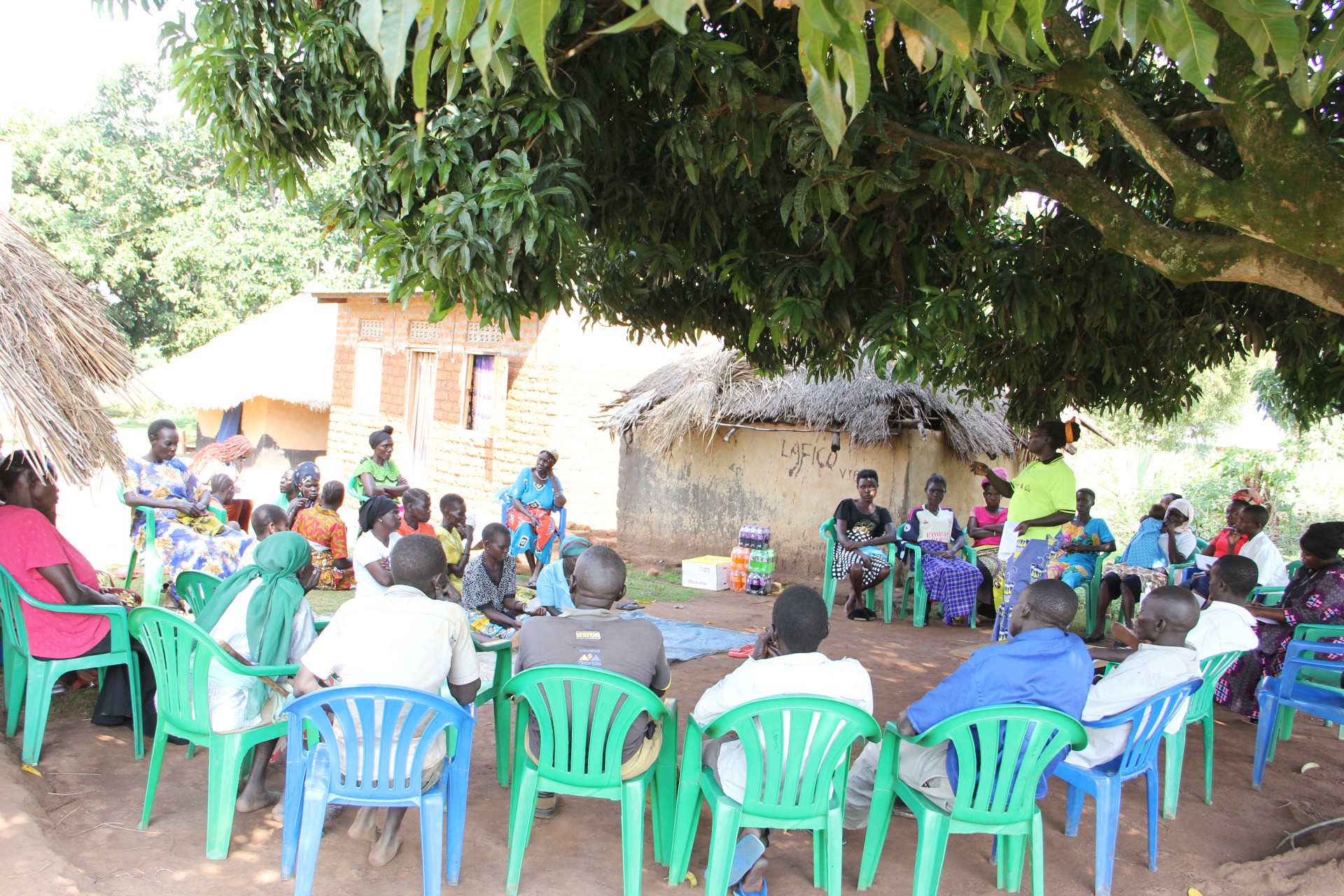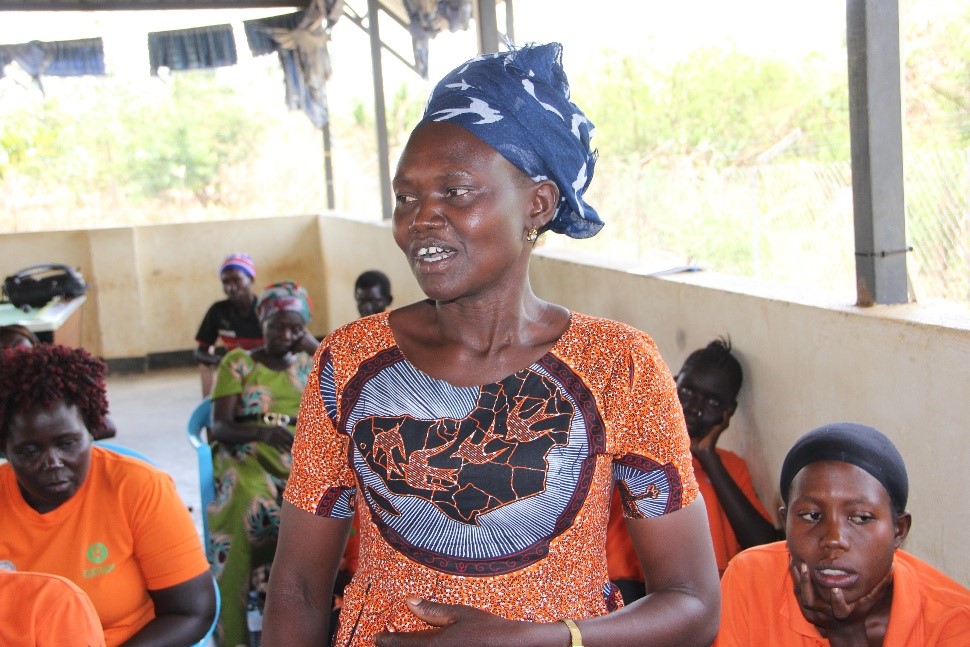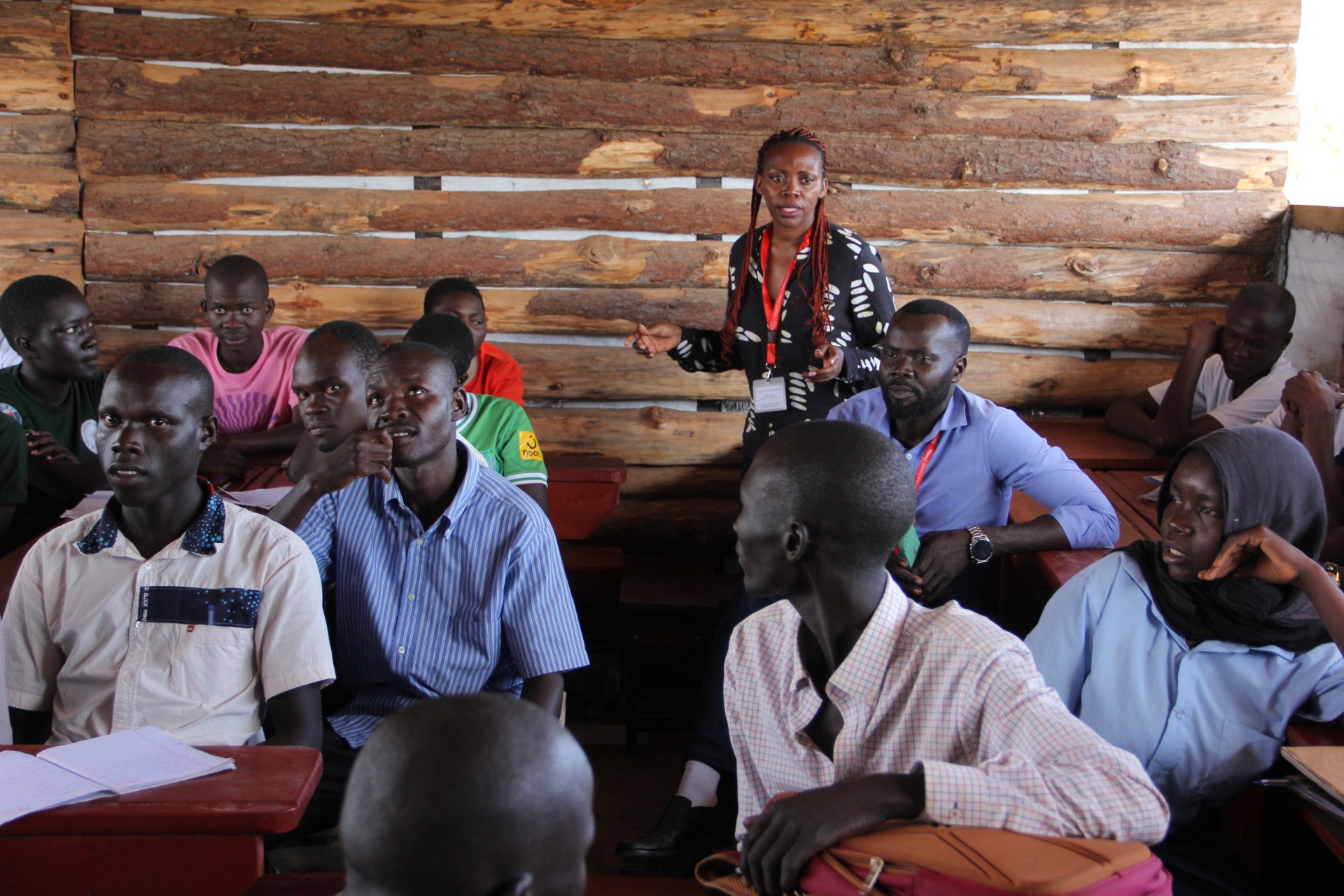Field Offices Empowering Refugee-Led Recovery
Refugee-led media action and innovation across Koboko, Obongi, and Yumbe districts in Northern Uganda
In Uganda’s northwestern corridor, stretching across Koboko, Obongi, and Yumbe, CECI Uganda operates a unique model of field-based coordination and refugee-led development. CECI functions as a structured, multi-site service provider working hand in hand with international agencies and donors to implement targeted programs that strengthen refugee and host community resilience. “We serve 147,098 refugees and hosts across three districts in Northern Uganda, providing education, financial resources, and skills to promote peace, reconciliation, self-reliance and development.”
At the heart of CECI’s organisational design are its Field Offices, established directly within or adjacent to refugee settlements. Each operates within the formal administrative hierarchies of Uganda’s refugee response system, ensuring that every project aligns with district and settlement authorities and that community voices are channelled through recognised structures. From its headquarters in Koboko, CECI coordinates three smaller but strategically placed field offices, creating a distributed network capable of agile response and consistent oversight.
“At CECI Uganda, we take great pride in being a refugee-led organization that innovates local solutions to prevent violent conflict and alleviate poverty. We work side by side with refugees and host communities to plant trees, assist out-of-school youth in accessing education, and support women in getting elected to leadership roles. Our work together helps these communities resolve and prevent conflict, rebuild their livelihoods, foster recovery, and adopt sustainable practices to mitigate the effects of climate change.”

Co-Creating Innovative and Creative Local Solutions
CECI’s approach centres on co-creation and innovation in all aspects of their work, and through a people-centred approach, as a “refugee-led organisation that innovates local solutions to prevent violent conflict and alleviate poverty.”
Through 2023, CECI and its partners directly supported over 16,000 people, including women, youth, and persons with disabilities, helping families rebuild livelihoods, regain access to education, and strengthen social cohesion after years of disruption from conflict, displacement, and pandemic recovery.
“We co-create sustainable solutions with local communities to address violent conflicts and poverty. Using small, scalable projects, we promote positive interactions, peace, social cohesion, livelihood opportunities, and skills for development. We believe in co-creating innovative and creative local solutions that address the urgent needs of refugees and their host communities.”
Helping Kids Heal Through Creativity
Transformative Art Therapy for Children
We run art therapy programs for children affected by conflict in Northern Uganda, where 84% of refugees are women and children. These programs use art and drawing as trauma therapy and social cohesion tools to provide healing and hope to children in Bidibidi Refugee Settlement, home to over 270,000 refugees. Offering arts, culture, and play-based activities that help children, including unaccompanied minors facing ongoing trauma, emotionally reconcile with trauma and grief.
Local Projects and #ASKnet Collaboration
Within the #ASKnet framework, CECI’s field offices have hosted a range of community media and skills development initiatives focused on education, communication and environmental sustainability. Their collaboration with other #ASKnet members have strengthened the network’s regional reach, especially in Uganda’s refugee-hosting zones, where knowledge access and digital inclusion are vital to community resilience.
“We work directly with youth, women, and girls from refugee and host communities to prevent, reduce, and transform violent conflicts. Our peacebuilding, education, arts therapy, livelihood, and environment programs are rooted in local innovations and driven by local needs.”

Education: We promote girl child education and early childhood development through menstrual hygiene management, advocacy, community awareness and education, educational materials, public health promotion, gender-based violence community awareness and empowerment, and educational radio programming for children.
Livelihood: CECI’s Watson Basecamp helped Ropani Faiza, a school drop-out, develop an innovative business idea that led her to become an entrepreneur owning and operating a tailoring school and a mobile money business. Faiza’s businesses now earn her monthly profits exceeding UGX 200,000/- and allow her to care for her ill parents while using her tailoring school to enhance the livelihoods of vulnerable girls.
Environmental Awareness Programs: CECI promotes environmental sustainability through community education on climate change and environmental conservation, Solar Electric Cooking, the promotion of tree planting and use of alternative fuel sources, and proper waste disposal and management.”
Restoring the Degraded Environment: In the project they mapped and selected 3 degraded wetlands for restoration and secured 5 acres of land for growing natural weather-resistant trees. Through our awareness sessions engaging refugees, hosts, and local leaders, we secured the declaration of the 5-acre land for tree growing in Jomorogo village, Kululu Sub County. We established 5 environmental protection groups of 5 members from the refugee and host communities. These groups are actively planting weather-resistant trees and grasses in degraded wetlands, conducting awareness sessions on environmental protection and have created fire lines to prevent bush burning in the 3 wetland areas and the tree-growing site, protecting trees from wildfires and mitigating conflicts associated with shared ecosystems.”
Youth Empowerment and Safe Spaces: In partnership with schools and local partners, CECI field trainers worked to create safe learning environments and mentorship programs that encourage girls’ participation in ICT and science-related subjects.
Integrating Mental Health and Psychosocial Support (MHPSS) into livelihood and peacebuilding programs significantly improves household income, wellbeing, and reduces conflict and suicidal tendencies in refugee camps. By addressing the underlying mental health and psychosocial needs of refugees and providing them with necessary skills and resources, such as livelihood opportunities and basic necessities, we have witnessed a decrease in tensions, conflicts, and suicide rates and an increase in household food security, income and wellbeing. This emphasizes the importance of incorporating MHPSS within broader development and peacebuilding interventions, as it enhances individual wellbeing and strengthens the overall resilience and stability of conflict-affected communities.

Field-Based Model and Coordination Strength
Each CECI field office serves as both a project coordination node and a community liaison point, ensuring that interventions are locally anchored and meet real needs.
This operational flexibility allows CECI to align diverse donor projects under a unified approach to peacebuilding, livelihood restoration, and capacity development. By maintaining strong communication channels with local authorities, CECI ensures that refugee-led initiatives are recognised and integrated within broader district development frameworks.
Looking Forward
As CECI continues to expand its reach, its field office model demonstrates a hybrid approach that bridges humanitarian coordination with grassroots community engagement. Through initiatives with the #ASKnet network, CECI affirms its commitment to empowering refugees as active agents of change in the co-creation of local solutions.